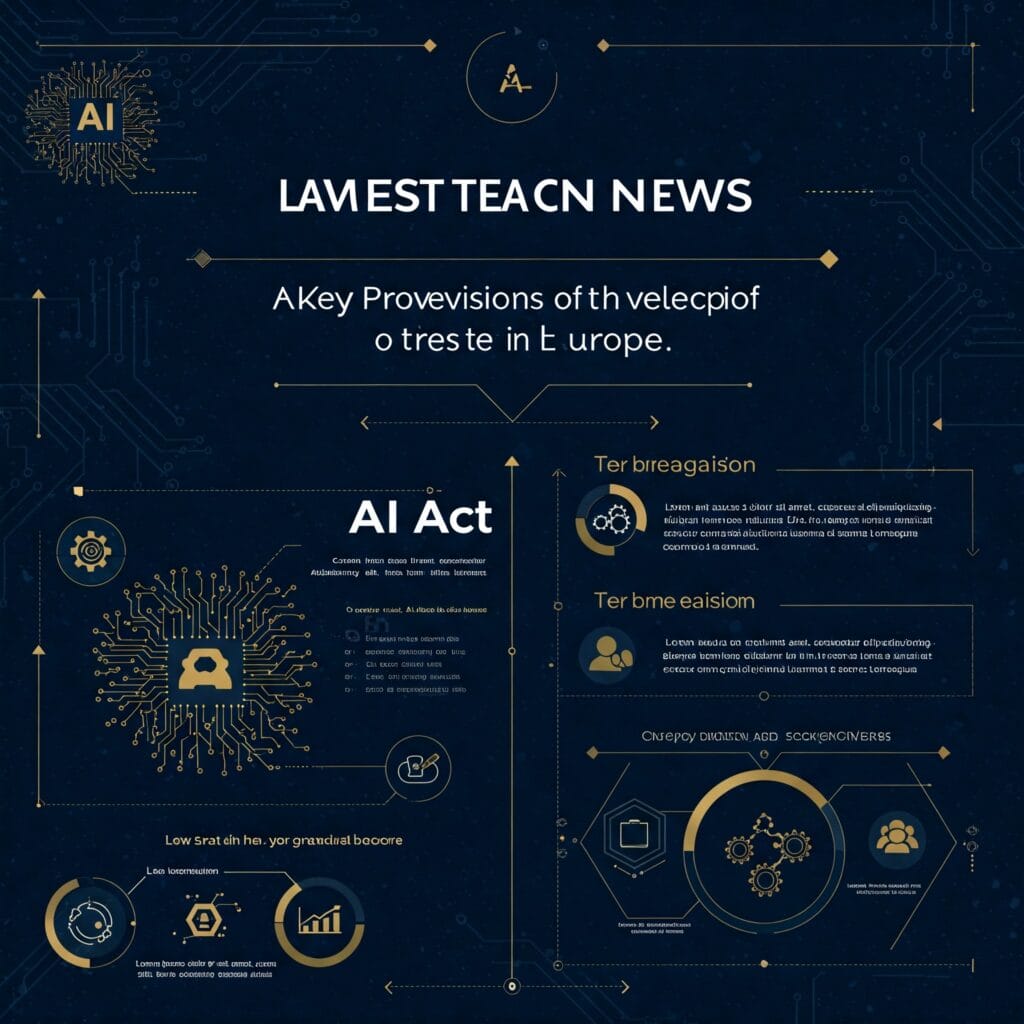Latest Tech News: AI Regulations in Europe

Stay updated with the latest tech news! Discover cutting-edge innovations, gadget reviews, and industry insights that keep you ahead in the tech world.
Stay ahead of the curve with our Latest Tech News subscription. It is your go-to source for cutting-edge developments in the tech world. From groundbreaking innovations to industry insights, we deliver prompt updates that keep you informed and inspired.
Whether you’re a tech enthusiast or a professional, our curated articles offer expert analyses. They guarantee you never miss a beat in this fast-paced digital landscape. Join us and elevate your tech knowledge today!
Latest Tech News: AI Regulations in Europe Tighten Amidst Growing Concerns
February 2025
The European Union (EU) has taken a significant step ahead in regulating artificial intelligence (AI). They have finalized the EU AI Act, the world’s first comprehensive legal framework for AI. This landmark legislation aims to balance innovation with ethical considerations, ensuring AI deployment aligns with fundamental rights and public safety.
Latest Tech News: Key Provisions of the EU AI Act
The AI Act categorizes AI applications into different risk levels:
- Unacceptable Risk AI: Fully banned (e.g., biometric categorization for racial profiling, social scoring systems like China’s social credit system).
- High-Risk AI: Topic to strict regulations (e.g., AI used in critical infrastructure, law enforcement, and recruitment tools).
- Limited Risk AI: Requires transparency but fewer restrictions (e.g., AI chatbots must reveal they are not human).
- Minimal Risk AI: No restrictions (e.g., AI-powered video games, spam filters).
Latest Tech News: Impact on Tech Companies
Tech giants like Google, Microsoft, and OpenAI are now obliged to follow stringent guidelines for high-risk AI applications, including:
- Conducting risk assessments before deployment.
- Ensuring AI systems are free from bias.
- Implementing clear documentation for accountability.
- Allowing users to contest automated decisions.
Startups and smaller AI firms have expressed concerns over compliance costs. Many are urging the EU to offer financial and logistical support to meet the new requirements.
Latest Tech News: Reactions from Industry and Policymakers
Margrethe Vestager, the EU’s digital chief, praised the AI Act as a “global benchmark for trustworthy AI.” Nonetheless, critics argue that excessive regulations stifle innovation and push AI research outside Europe.
Elon Musk, CEO of Tesla and X, commented, “AI safety is critical. Yet, overregulation will slow down Europe’s AI progress compared to the U.S. and China.”
Meanwhile, privacy advocates have welcomed the AI Act, emphasizing its role in preventing AI-driven discrimination and abuse.
Latest Tech News: What’s Next?
The AI Act is expected to be fully enforced by 2026. Penalties for non-compliance can reach up to 6% of a company’s global annual turnover. The EU is also collaborating with international partners, including the U.S. and UK, to create global AI governance standards.
As AI continues to evolve, Europe’s approach will set a precedent for other nations looking to regulate AI responsibly. The coming months will be crucial in shaping how businesses and governments adapt to these new rules.
FAQ: AI Regulations in Europe
Q: What is the EU AI Act?
A: The EU AI Act is a comprehensive legal framework. It regulates AI applications based on their risk levels. This ensures ethical and safe deployment.
Q: When will the AI Act be enforced?
A: The AI Act is expected to be fully enforced by 2026.
Q: What are the penalties for non-compliance?
A: Companies that fail to follow the AI Act face penalties. These penalties can be up to 6% of their global annual turnover.
Q: How does the AI Act categorize AI applications?
A: AI applications are categorized into four risk levels: Unacceptable, High-Risk, Limited Risk, and Minimal Risk.
Q: How will the AI Act impact tech companies?
A: Companies will need to conduct risk assessments, remove biases, keep documentation, and give transparency in AI deployment.
Q: What are the concerns about the AI Act?
A: Some critics worry about stifling innovation, while smaller companies are concerned about compliance costs.
Q: How does this affect AI startups?
A: Startups struggle with the financial and logistical burdens of compliance, prompting calls for EU support.
Q: Will this influence AI regulations globally?
A: Yes, the EU’s approach is expected to set a precedent for AI governance worldwide.
Latest Tech News: Stay tuned for more updates on AI regulations and their global impact.
Discover more from Trending News Fox
Subscribe to get the latest posts sent to your email.


